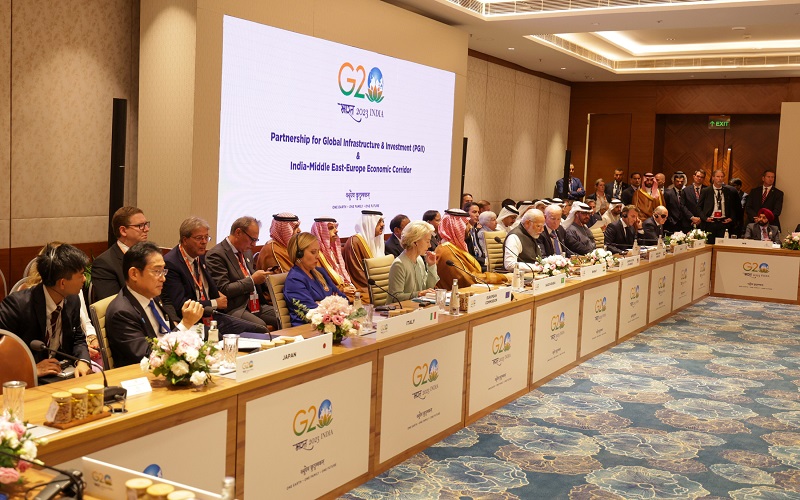An inclusive world especially with the addition of the African Union as member of the G20 and launch of a global biofuel alliance have been big achievements for India as the G20 chir but what has hit headlines is the thrust on connectivity with the proposed US-led India-Middle East-Europe Economic Corridor, a multinational rail and shipping project linking the three regions. That too, in the absence of China’s President Xi Jinping.
Importantly, sources said that the aim would be to expand the connectivity network by adding more countries as the project starts taking shape. The corridor will also provide a ready economic opportunity for South Asian nations especially Bangladesh, Nepal and Bhutan to enhance trade and connectivity.
“Enhancing connectivity with all regions has been a key priority for India,” Prime Minister Narendra Modi said, adding that connectivity is a means to not only increase mutual trade between different countries but also increase mutual trust. Modi, while delivering his opening welcome address, underlined the need for the world community to work together to bridge the widening trust deficit.
“Today, as we embark upon such a big connectivity initiative, we are sowing the seeds for future generations to dream bigger,” he said.
US President called it a “real big deal.”
“While talks on this project has been on for a while, the announcement giving some finality to it is a welcome step,” an analyst said.
The corridor, which will balance China’s growing influence through the Belt and Road Initiative, will cover India, Saudi Arabia, the United Arab Emirates, Jordan, Israel and the European Union. Many have already termed it as a game changer for enhancing trade, food and energy cooperation besides boosting connectivity.
“The deal will benefit low- and middle-income countries in the region, and enable a critical role for the Middle East in global commerce, Jon Finer, the US deputy national security adviser, told reporters.
Chatham House, in a report, noted that India’s G20 presidency is the culmination of a year of milestones. The country has become the fourth to land on the moon, surpassed China as the world’s most populous country and overtaken the UK as the world’s fifth-largest economy.
In hosting over 200 G20 events across every Indian state and union territory (including the disputed territory of Jammu and Kashmir), New Delhi has sought to reaffirm its sovereignty and territorial integrity, it added.
“The ongoing G20 summit in New Delhi is surely setting a stage by which India gets to assert its global prowess,” Hong Kong based South China Morning Post quoted Farwa Aamer, director of South Asia Initiatives at the Asia Society Policy Institute as saying. “The absence of Xi and (Russian President Vladimir Putin) Putin should no longer overshadow the forum’s potential,” she added, citing the initiatives and stronger diplomatic ties it has engendered with developing countries.




















